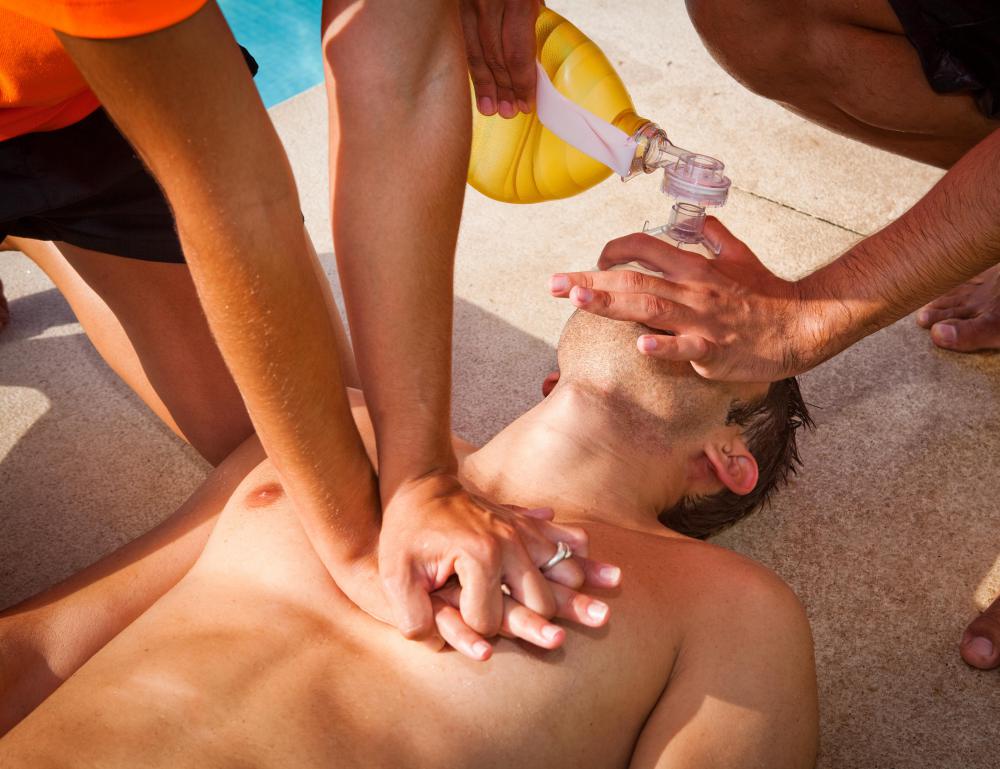At PracticalAdultInsights, we're committed to delivering accurate, trustworthy information. Our expert-authored content is rigorously fact-checked and sourced from credible authorities. Discover how we uphold the highest standards in providing you with reliable knowledge.
What does a Paramedic do?
A paramedic is a medically trained individual who responds to emergency calls and provides on-scene medical treatment. When necessary, he or she also provides transportation to a hospital or emergency medical facility and administers medical treatment while en route. Depending on the location, a paramedic may work for a hospital, private organization, or in many cases, as part of a municipality’s fire department or emergency response team.
In most locations, all emergency response personnel, including paramedics, must receive specialized training and certification before working. Actual training and certification requirements may vary depending on the country and jurisdiction.

While a paramedic is part of a group of medical first responders or emergency medical technicians (EMTs), he or she receives the most advanced level of training and is usually not referred to as an EMT, but rather by this specific title. As part of a response group, there may be a varied combination of first responders with varied levels of training. A paramedic is generally part of the ambulatory response team, while EMTs may arrive on scene with fire fighters prior to the ambulance.

Some of the specific roles a paramedic is trained to perform include basic life support, such as rescue breathing and CPR, trauma assessment, respiratory crisis intervention, and cardiac life support such as defibrillation. Paramedics also administer intravenous fluids, oxygen, and medications necessary for stabilization. Their typical role is to provide life-saving, emergency medical treatment only until a patient arrives at a medical hospital or other treatment facility where a doctor takes over care. The paramedic gathers and records vital sign information and administers treatment as necessary based on the type of emergency. Once the patient has been transported to the hospital, this information is passed on to the attending physician or emergency room personnel and the paramedic leaves, returning to his or her base of operation to await the next emergency.
AS FEATURED ON:
AS FEATURED ON:

















Discuss this Article
Post your comments